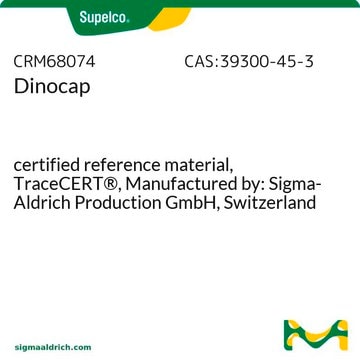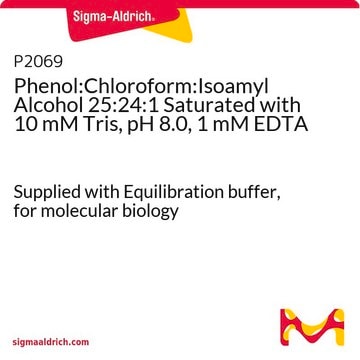133221
Bis(5-chloro-2-hydroxyphenyl)methane
95%
Synonym(s):
Dichlorophen, Dichlorophene
About This Item
Recommended Products
Assay
95%
form
powder
mp
168-172 °C (lit.)
solubility
95% ethanol: soluble 1g/g
methanol: soluble
petroleum ether: soluble
toluene: very slightly soluble
water: insoluble
functional group
chloro
SMILES string
Oc1ccc(Cl)cc1Cc2cc(Cl)ccc2O
InChI
1S/C13H10Cl2O2/c14-10-1-3-12(16)8(6-10)5-9-7-11(15)2-4-13(9)17/h1-4,6-7,16-17H,5H2
InChI key
MDNWOSOZYLHTCG-UHFFFAOYSA-N
Looking for similar products? Visit Product Comparison Guide
General description
Application
Disclaimer
Signal Word
Warning
Hazard Statements
Precautionary Statements
Hazard Classifications
Acute Tox. 4 Oral - Aquatic Acute 1 - Aquatic Chronic 1 - Eye Irrit. 2
Storage Class Code
11 - Combustible Solids
WGK
WGK 3
Flash Point(F)
Not applicable
Flash Point(C)
Not applicable
Personal Protective Equipment
Choose from one of the most recent versions:
Already Own This Product?
Find documentation for the products that you have recently purchased in the Document Library.
Our team of scientists has experience in all areas of research including Life Science, Material Science, Chemical Synthesis, Chromatography, Analytical and many others.
Contact Technical Service









